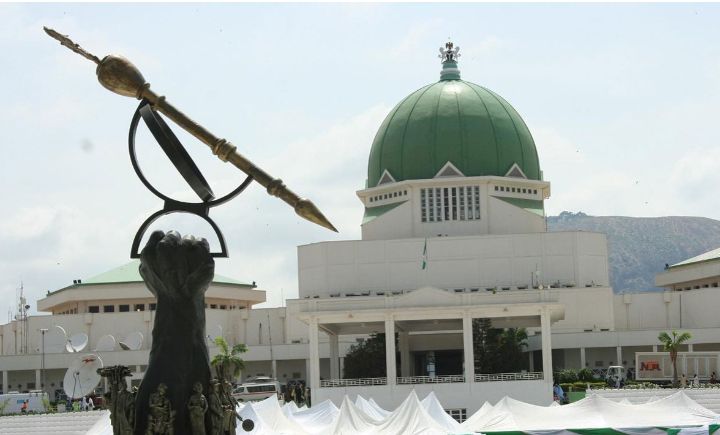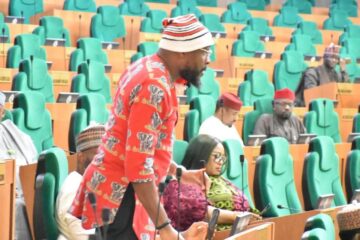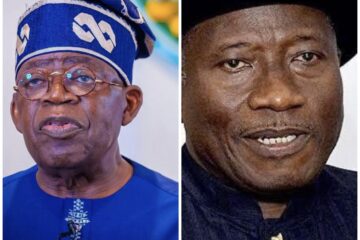Defections Push APC Membership Close to 300 Seats in the National Assembly
The wave of defections from opposition parties continues to reshape the political landscape in Nigeria’s 10th National Assembly, boosting the ruling All Progressives Congress (APC) to near-total dominance. The APC now holds 68 seats in the Senate and about 207 in the House of Representatives—bringing its combined strength to nearly 300 members.
This trend, occurring less than two years into the current legislative session, has dramatically shifted the balance of power in favor of the APC. At the inauguration of the 10th National Assembly in June 2023, the APC held 59 seats in the Senate and 175 in the House, with opposition parties controlling a slim majority in the House and near parity in the Senate.
In the Senate, upcoming defections are expected to further solidify the APC’s dominance. Senator Neda Imasuen (Labour Party, Edo South) is set to formally join the APC on June 12, pushing the party’s Senate count to 69. If Senator Ahmed Wadada Aliyu (Nasarawa West) confirms speculation about returning to the APC after resigning from the Social Democratic Party (SDP), the number could rise to 70.
Recent defections from the Peoples Democratic Party (PDP) have been especially significant. Three senators from Kebbi State—Adamu Aliero, Yahaya Abdullahi, and Garba Maidoki—recently crossed to the APC following consultations with President Bola Tinubu. These moves have reduced PDP’s Senate seats from 36 to 30. Meanwhile, the Labour Party has also seen defections, including Senators Ezenwa Onyewuchi (Imo East) and Kawu Sumaila (Kano South), both of whom cited internal party crises.
The Senate’s current composition stands at: APC – 68, PDP – 30, LP – 5, SDP – 2, NNPP – 1, APGA – 1, with two seats vacant.
In the House of Representatives, the trend is even more pronounced. The APC has grown from 175 to approximately 207 seats. The PDP, which initially held 118 seats, now has fewer than 100, while the Labour Party and other smaller parties have experienced notable losses. The total opposition strength has dropped from 182 to about 150.
Defections in the House began in July 2024 and have accelerated since then. Notable defectors include Hon. Idris Salman (Kogi, ADC), Hon. Chris Nkwonta (Abia, PDP), and Hon. Amos Magaji (Kaduna, PDP). On December 5, 2024, four Labour Party lawmakers defected to the APC, citing internal strife: Hon. Chinedu Okere, Hon. Mathew Donatus, Hon. Bassey Akiba, and Hon. Esosa Iyawe.
In May 2025, the most significant shift occurred when six PDP lawmakers from Delta State defected to the APC, following Governor Sheriff Oborevwori’s move to the ruling party. Similarly, two LP members from Enugu and multiple lawmakers from the NNPP and PDP joined the APC, further tilting the balance.
Observers Raise Concerns
Analysts argue that the ongoing defections highlight systemic weaknesses in Nigeria’s democratic framework, particularly the absence of ideological identity among political parties.
Dr. Kamar Hamza, a political scientist at Ibrahim Badamasi Babangida University, Lapai, said: “Our political parties are not driven by ideology or policy. They’re platforms for seizing power. The lack of principles leads to instability and undermines democratic accountability.”
He added that the failure to enforce constitutional provisions on defections fuels the problem. “Legally, defectors should lose their seats unless their party is in crisis, but this is rarely enforced.”
Dr. Ibrahim Yahaya of Al-Hikmah University described the trend as a reflection of monetized politics. “Public office has become an investment. Politicians change parties to protect or enhance their returns—not to serve the public.”
He emphasised the impact of poverty and voter manipulation. “Poor citizens are easy to buy. Without political education and reform, genuine change is nearly impossible.”
Legal Implications Ignored
Barrister Manzuma Issa, a former Nigerian Bar Association (NBA) chairman in Ilọrin, lamented the disregard for legal checks on political cross-carpeting.
“The law is clear: unless a party is in crisis, defectors should lose their seats. But enforcement is non-existent. The same applies to Supreme Court rulings on issues like local government autonomy, which are also ignored,” he said.
Issa warned that this trend undermines the judiciary and erodes public trust in institutions: “If court rulings can be flouted with impunity, democracy is at risk.”
Looking Ahead
With more defections expected, especially from states like Akwa Ibom—where Governor Umo Eno recently left the PDP—analysts say the APC may soon exceed 300 seats in the National Assembly.
While the APC celebrates its growing dominance, critics warn that the unchecked wave of defections is a symptom of a deeper malaise: a political culture driven by opportunism, not governance.




